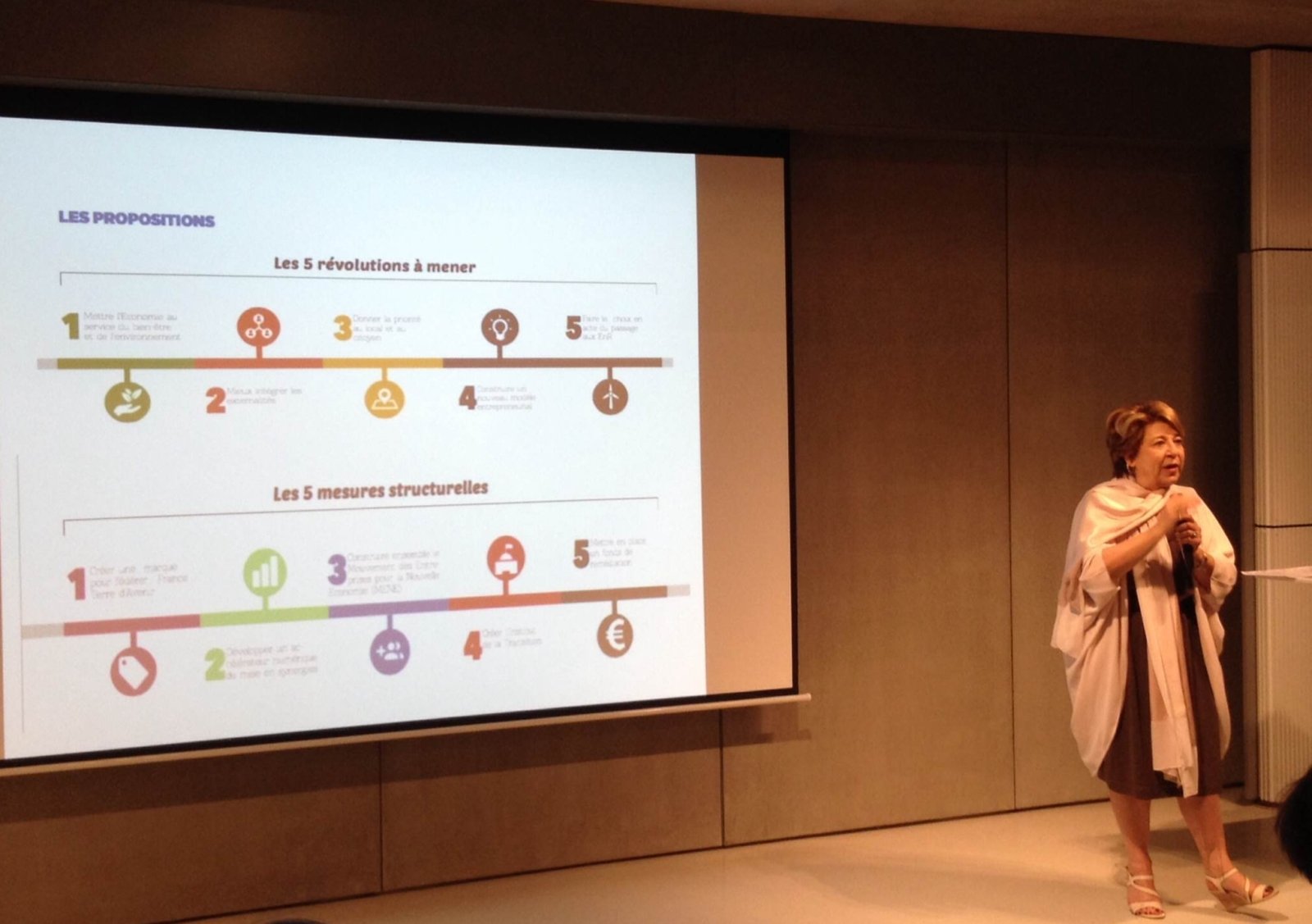Last January, Minister of Ecology, Sustainable Development and Energy, Segolène Royal, asked former European Deputy Corinne Lepage to deliver a report on « The New World Economy ». Freshly finished, the report is now on the Minister’s desk since June 15th.
The 139-pages report was written with the help of a task force led by Corinne Lepage. The task force was composed of 28 representatives of the industry, the scientific community, universities and the civil society.
The document is structured into 100 reforms crucial to transit from what the task force refers to as the Old World and the New World.
The New World Economy refers to « an economy freed from fossil fuels, connected, with a reclaimed local economy and an economy designed to serve mankind » but it also refers to a world composed of various actors, a world that takes into account social and environmental externalities and is willing to be a catalyst to the development of the Green Economy.
That New World also implies that several « revolutions » must be led. There are 5 of them, and they partially rely on Jeremy Rifkin’s thoughts on what he has called in his brand new book « The Third Industrial Revolution : How Lateral Power is Transforming Energy, the Economy and the World. »
To do so, various actors are needed. They are the ones called « The New World’s actors ». They are in charge of doing the transition from our current model that is described in the report as old and outdated compared to the economic and environmental stakes that France has to face and the new model.
The task force saw in the Old World an outmoded system within which we still evolve. Within it, the report mentions that the State is unadventurous, and the consumer is considered « having only few powers » while the citizen is « not being recognized
[as a valuable actor] as he should be, [because] he is only a simple citizen above anything else ».
Some fields are victims of this old-fashioned system. The French energy sector is one of them as it is often facing barriers that limit the rise of innovation and of innovative structures such as start-ups. These barriers stop the sector from developing as it should. In the light of these issues it is difficult for a French energy start-up to be in the spotlight as much as the semi-state owned big companies. Partnership attempts between small and big structures exist, eg. The Open Innovation, but despite these attempts, small structures are still not visible enough.
Start-ups directly compete with these big companies aforementioned that have access to much greater resources than the small structures which contributes to limiting the start-ups’ take on innovation.
That is why, the task force came up with economic, fiscal and regulatory solutions, in order to ease the transition between the two worlds.
The key points to these solutions are: the creation of a unifying brand « France Avenir » in order to support innovation while developing a digital accelerator for synergies, but also building together the Movement for Enterprises for the New Economy (MENE).
The report puts the energy as the main focus and a very important point is made about the necessity to move towards renewables. That is why one of the main points of this report is to « take the solar road ».
Two more points were also put upfront: the importance of the digital revolution of energy and « making the French Overseas Territories the display of a model of development for the South ».
Reuniwatt took these directions long ago. As a Soft Grid company, expert in photovoltaic, and originally from Reunion Island (a French Overseas Territory), Reuniwatt has an indisputable legitimacy on the ongoing themes discussed within Lepage’s report.
Reuniwatt stands among the New World’s Actors: an input to the report was handed to Madame Lepage and the company is thus mentioned several times in the report. The fact that her task force is shedding lights on the importance of photovoltaic production in order to « take the solar road » is another proof of the importance of solar PV forecasting.
